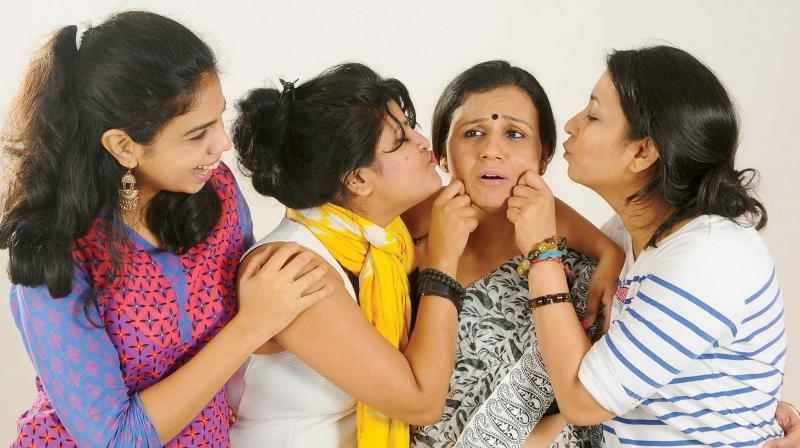Bound by a common narrative!
Four women with broken marriages live under one roof and the play gradually unfolds their lives.

The Indian society and superstitions go a long way. But how are these superstitions formed? And how exactly are they perceived? Who wins in the tussle between superstitions and reality? Can superstitions surpass reality and become the ultimate truth? These very questions are raised and analysed at Aamhi’s upcoming production, UEE.
The story revolves around four girls from different backgrounds. Their lives are tied together by living under the same circumstances in a hostel. “Each character has their own belief about love, men, sex, marriage etc,” shares director Sandeep Paranjape. Written by Sanjay Pawar in 2013, the original play called Thashta was in Marathi, and Sandeep translated it to Hindi in the year 2015. Delving deeper into the plot, Sandeep speaks about how UEE does not aim to provide any solution nor does it aim to be a comforting blanket to any problems. “The opinions that the leading ladies carry have emerged and sustained with their experiences as well as through the passage of time. The play’s attempt is to make the audience seek an answer to some of the common issues and concerns faced by women in their everyday lives.”
The play’s narrative and plot might seemingly appear mainstream, owing to the current influx of women empowering movies. But novelty appears in the little nuances, and especially in the form of the character of Anamika. “As you might infer from the name, more than a concrete person, the character is an entity. A thought process, if you will,” claims Shatarupa Bhattacharya, who plays the role. “She is the personification of the idea that the audience could presumably be framing throughout the duration of the play. Her character gives the audience the chance to think and analyse and be their own judge to decide which is right or wrong.”
The four pivotal characters Anamika, Akshata, Karuna and Preeti have one thing in common, and that is broken marriages. Superstition is imposed upon their lives as the owner of the hostel believes that the room they share is cursed. Yet there is stark contrast and diversity in the form of the characters of Akshata and Preeti. “Akshata is your regular independent working woman. Her marriage doesn’t work out because she couldn’t take being ruled by another man,” says actor Spoorthy Gumaste. “Preeti on the other hand is the docile one who does exactly what the society demands of a woman. The aim at bringing two such characters together is to show that no matter what your personality is, women in our society will always be the subject of judgment and imposed upon by ridiculous rules,” she adds.
The twist in the tale that the audience can look out for is the future of Karuna, in the story. “She’s the relatively older one. The more mature one who has seen and dealt with a lot of hardships,” spills Anshulika Kapoor, who plays the part. “What she stands for is that change of ideas and beliefs isn’t impossible because of age. She’s the symbol of how middle aged women cope with adapting to liberal views as opposed to the restrained ones they have been brought up with.” She concludes, saying, “With her innumerable twists and turns, our play will make the audience relate to the characters and thus reach to their own conclusion.”

